Making Learning Whole: How Seven Principles of Teaching Can Transform Education
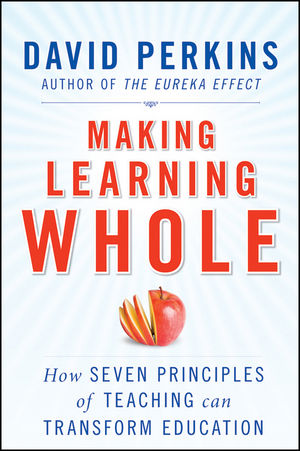
This book focuses on how teaching any subject at any level can be made more effective if students are introduced to the whole game, rather than isolated pieces of a discipline. Authored by David Perkins, co-director of Harvard’s Project Zero, who explains how learning academic subjects should be approached like learning baseball or any game.… Read More ›
Continued Progress: Promising Evidence on Personalized Learning
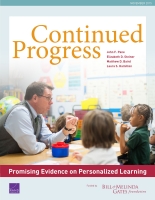
This report examines achievement in 62 public charter and district schools that are pursuing a variety of personalized learning practices, and examines implementation details in 32 of those schools. Researchers obtained achievement data for personalized learning students and a matched comparison group of students attending other schools serving similar populations. They also collected and analyzed… Read More ›
What Are Teachers’ and School Leaders’ Major Concerns About New K–12 State Tests?
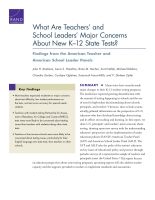
This report shares U.S. principals’ and teachers’ main concerns about testing, drawing upon new survey tools for understanding educators’ perspectives and implementation of major education policies: RAND’s American Teacher Panel and American School Leader Panel. The findings are drawn from the ATP and ASLP surveys fielded in February 2015, before the full administration of most… Read More ›
Competency-Based Education in Three Pilot Programs
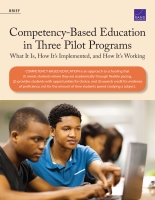
This research brief summarizes findings of the RAND evaluation of Bill & Melinda Gates Foundation’s Project Mastery grant program, which was created in 2011 to support competency-based education initiatives in large school systems that serve a high proportion of disadvantaged youth. Competency-based education meets students where they are academically, provides students with opportunities for choice,… Read More ›
Education Indicators for Maine 2015
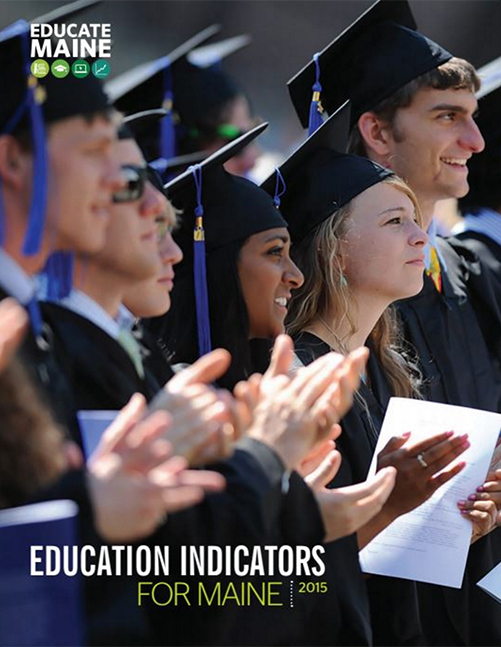
In this report from the Nellie Mae Education Foundation, Educate Maine examines 10 indicators around education access, achievement, and participation for Maine students. Beyond promoting discussion, this paper serves as a call to action for increasing engagement, positive dialogue, and support for promising strategies amongst stakeholders so all Maine’s students receive the education they deserve.… Read More ›
Integrated STEM Education through Project-Based Learning
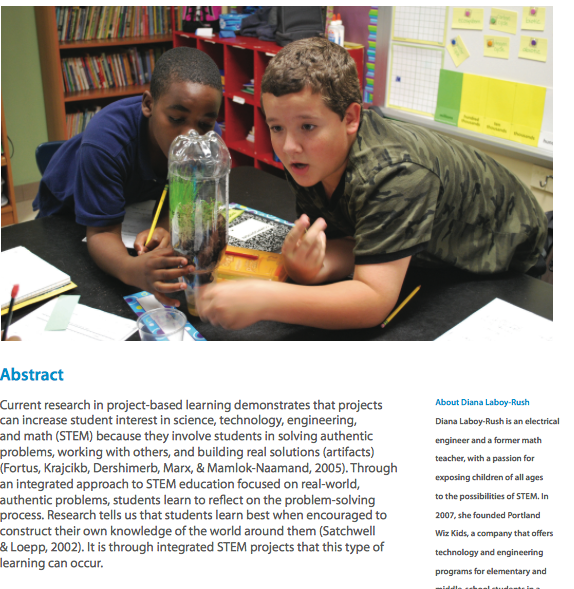
This paper outlines the research underlying successful project-based STEM education and refers educators to a unique curriculum that supports teachers to implement a project that encourages students to solve problems in science, technology, engineering, and math (STEM) fields. It includes an overview of a project-based learning process that takes students through the reflection, research, discovery,… Read More ›
Making Time for Instructional Leadership
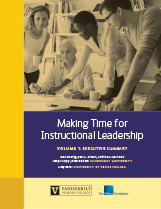
This three-volume report describes the “SAM process,” an approach that about 700 schools around the nation are using to direct more of principals’ time and effort to improve teaching and learning in classrooms. Research has shown that a principal’s instructional leadership is second only to teaching among school-related influences on student success. But principals often… Read More ›
Continuous Improvement in Education

This white paper by Sandra Park, Penny Carver, Lee Nordstrum, and Stephanie Hironaka, provides examples that illustrate how continuous quality improvement methodology is being applied in education toward the goals of making education more efficient, effective, and equitable. The examples are organized in three broad categories: at the level of classroom instruction, system-wide, and improvement efforts with collective… Read More ›
Equal Opportunity for Deeper Learning

This report calls for fundamental changes in curriculum, assessment, and policy to ensure equity among students regardless of socioeconomic status. The quality of instruction for low-income students and students of color is increasingly becoming a concern in the United States. Access to a more rigorous curriculum for underserved students can bridge gaps by equipping students… Read More ›
How School Districts can Support Deeper Learning: The Need for Performance Alignment
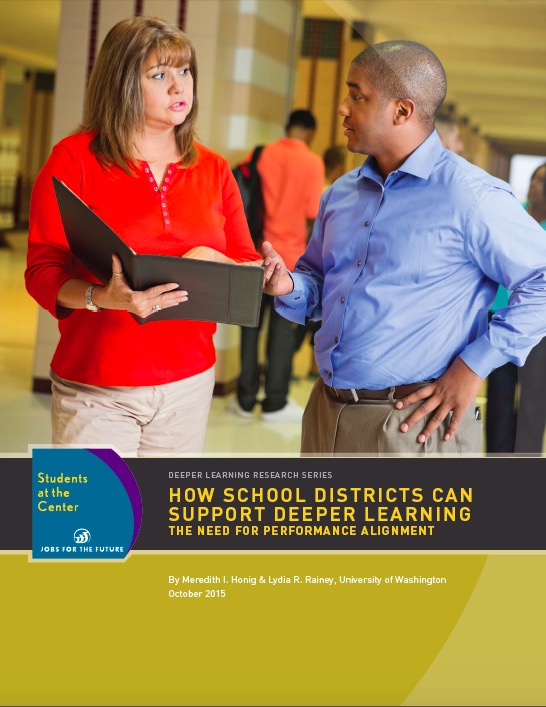
This report addresses why district central office leaders should make performance alignment a key part of their efforts to help all students learn deeply. And what, more specifically, does performance alignment entail and how might district leaders move in that direction? School district leaders nationwide aspire to help their schools become vibrant places for learning—where… Read More ›
Preparing Leaders for Deeper Learning
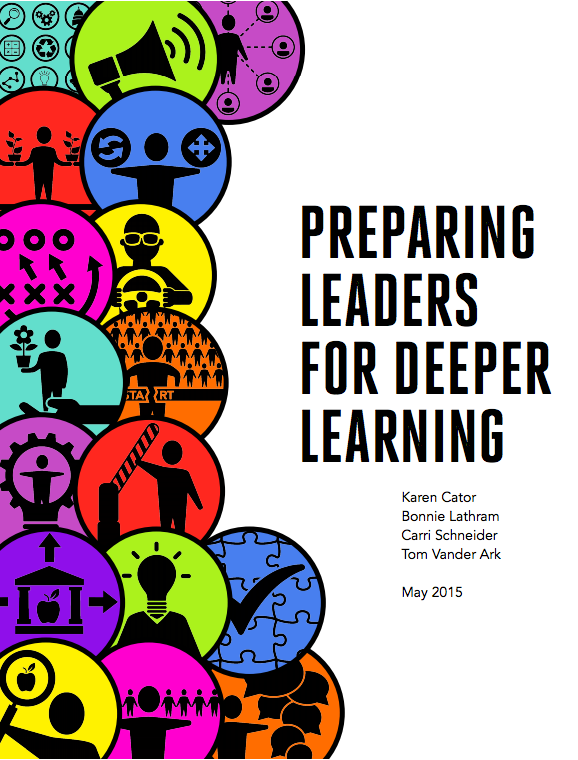
This paper focuses on program design and development for school and district leaders surrounding the creation of sustainable deeper learning environments. The paper addresses two fundamental questions: 1) As a growing body of schools and districts recognize the need for deeper, blended, competency-based learning environments for students, how must the role of leaders evolve to… Read More ›
A State Policy Framework for Scaling Personalized Learning
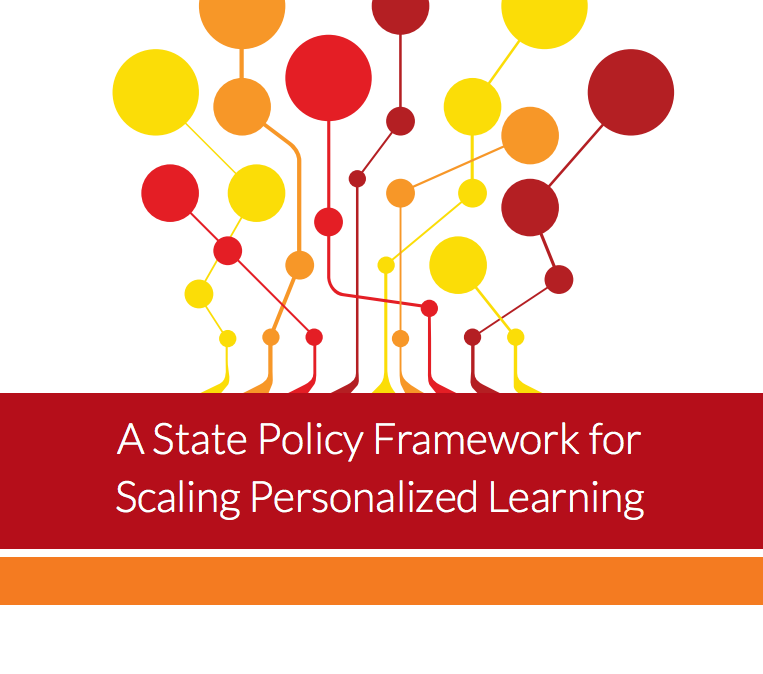
This report identifies strategies to support scaling personalized learning for districts. Developed by KnowledgeWorks, the report focuses on curriculum, assessment, learning environments, partnerships, and more as recommendations for successful scaling efforts. Source Organization: KnowledgeWorks Visit the Resource